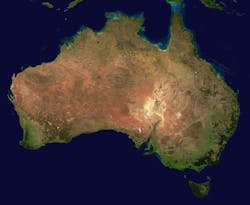Australian Government proposes more controls on LNG exports
The Australian Government has proposed further changes to the country’s Domestic Gas Security Mechanism that would give it the power to curb LNG exports from east coast producers.
The proposed changes come on top of government moves to cap gas prices and impose a mandatory code of conduct on gas producers.
The new proposal came in the form of draft guidelines for the gas security mechanism released late Thursday by Resources Minister Madelaine King who said it was designed to balance the need to guarantee sufficient domestic gas supplies (to the east coast market) while safeguarding Australia’s global reputation as a stable and reliable supplier of energy to regional parties.
The government’s proposal is that in any quarter forecast to have a shortfall of gas supply, Australia’s east coast LNG exporters would have to obtain permission to export LNG. Effectively, the Federal Government (the Resources Minister) would hold power to decide how much LNG can be exported from Queensland’s three LNG exporters every quarter.
The three plants (Shell-operated Queensland Curtis LNG, ConocoPhillips and Origin Energy-operated Australia Pacific LNG, and Santos-based Gladstone LNG) are based on Curtis Island near Gladstone.
Export permission would be based on how much gas an LNG producer had committed to the domestic market and its contribution to alleviate a forecast shortfall. The government could grant a permit for an unlimited LNG export volume if it deems Australian consumers would be unaffected by the shortfall, or it could impose a limit on exported volumes.
LNG producers could apply to the Minister to increase allowable LNG exports to protect long-term LNG sales contracts. However, there would be no guarantee that those contracts will not be disrupted, suggesting that producers could trade gas with other parties or buy LNG on the global market to meet obligations.
There has been no immediate reaction from the east coast LNG producers or the industry in general, but analysts suggest the gas industry will have concerns about the potential power the Resources Minister could have over LNG export controls without realizing the impact and unintended consequences a decision to curb exports could have on trading partners.
Comments on the government’s draft proposal are due Feb. 23, 2023.
